Navigating health insurance can be quite daunting, especially when it comes to the unexpected denial of claims. Many individuals find themselves in a frustrating position, unsure of how to proceed or appeal the decision made by their insurance company. By understanding the essential components of a well-crafted appeal letter, you can effectively present your case and advocate for the coverage you deserve. Ready to take charge of your health insurance journey? Read on to discover the key elements to include in your appeal letter!

Patient Information
Health insurance denial appeals can be complex and require clear documentation. Patient information is crucial for accurately assessing the case. Include details such as full name, date of birth, and insurance policy number. Address the letter to the appropriate claims department or appeals unit. Specify the date of service related to the denied claim, along with the procedure codes and diagnoses involved. Ensure contact information, such as a phone number and email address, is included for follow-up. Gathering supporting documents like medical records or letters from healthcare providers can strengthen the appeal. Ensure all information aligns with the insurance company's guidelines for submitting an appeal.
Insurance Policy Details
Health insurance denial appeals require specific information to effectively communicate the case. Essential details include the policy number, which uniquely identifies the insurance coverage. The claimant's name provides clarity and ensures accurate reference to the individual involved. Date of service is crucial, indicating when the medical treatment or service occurred, which assists in reviewing the timeline of events. Description of the denied service must be included, along with the denial reason provided by the insurance company for transparency. Supporting documentation, such as medical records or letters from healthcare providers, strengthens the appeal by providing evidence of necessity and appropriateness of the care received. Clear articulation of the desired outcome, such as reconsideration of the claim or coverage approval, further defines the goal of the appeal process.
Denial Reason Explanation
Health insurance denial appeals often stem from reasons such as lack of medical necessity or incorrect coding. For example, an insurance provider might deny a claim for a surgical procedure, stating that it was not deemed medically necessary according to their guidelines, which can vary significantly among providers. Incorrect coding can also lead to denials; for instance, using the wrong ICD-10 code to classify a diagnosis may result in the claim being rejected. It is crucial to meticulously review claims and denial letters, paying close attention to specific verbiage and policy language to construct a compelling argument for reconsideration. Supporting documentation, such as medical records and letters from healthcare professionals, can be invaluable in demonstrating the necessity and appropriateness of care provided.
Supporting Medical Documentation
Health insurance denial appeals often require comprehensive supporting medical documentation to challenge the decision effectively. For instance, a denial concerning a specific treatment (like an MRI scan) often necessitates detailed records from healthcare providers, including diagnoses, treatment plans, and notes from specialists like neurologists. These documents should explicitly outline the medical necessity and rationale behind the recommended procedure. It is crucial to include lab results, imaging studies, and any previous treatment outcomes that underscore the urgency of the medical intervention. Additionally, correspondence or notes from patient advocates (like those from organizations focused on chronic conditions) can provide broader insights into the necessity of care. A focused compilation of this documentation can significantly bolster the appeal's validity, influencing the review process by demonstrating clear clinical evidence.
Request for Reevaluation and Contact Information
Health insurance denial appeals often require a structured approach to facilitate accurate reevaluation. The appeal letter must include specific details surrounding the initial denial, including policy numbers and denial codes. Insurers often reference particular clauses or policy provisions as their basis for denial, and citing these accurately helps target the reevaluation process. In addition, comprehensive documentation such as medical records, treatment plans, and letters from healthcare providers can substantiate the necessity of coverage. Including specific contact information--such as the appeals department's email and phone number--ensures that all correspondence is directed correctly. Moreover, specifying a timeline for response supports prompt action on the appeal.
Letter Template For Health Insurance Denial Appeal Samples
Letter template of health insurance denial appeal for emergency treatment coverage
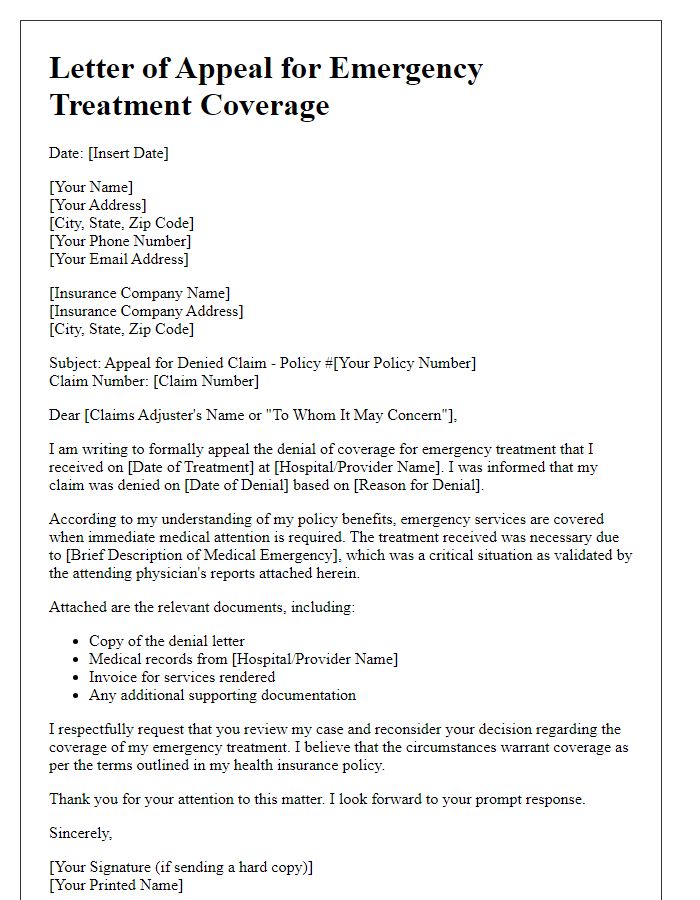
Letter template of health insurance denial appeal for pre-existing conditions
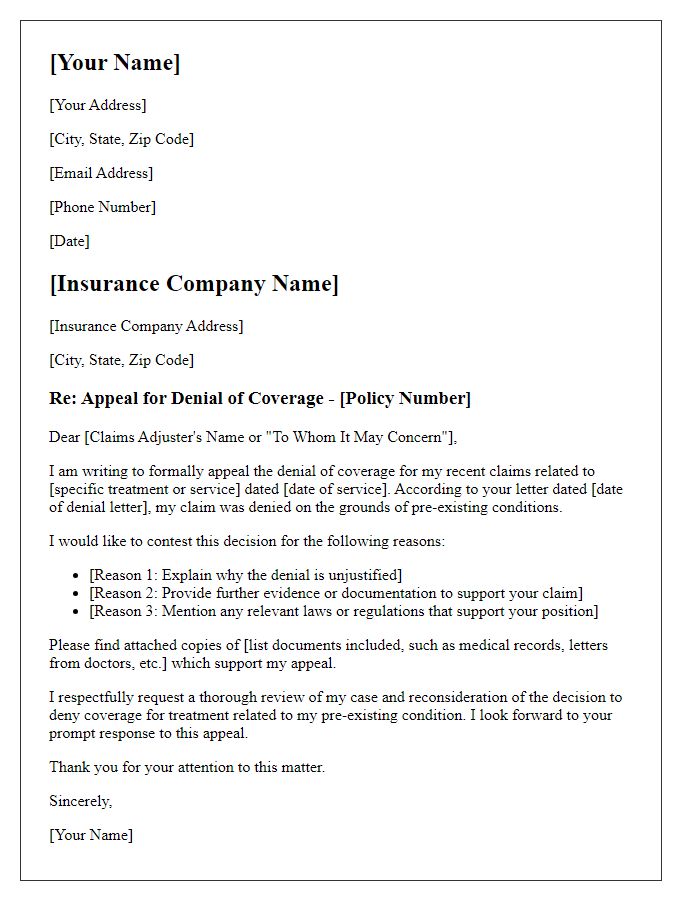
Letter template of health insurance denial appeal for out-of-network services
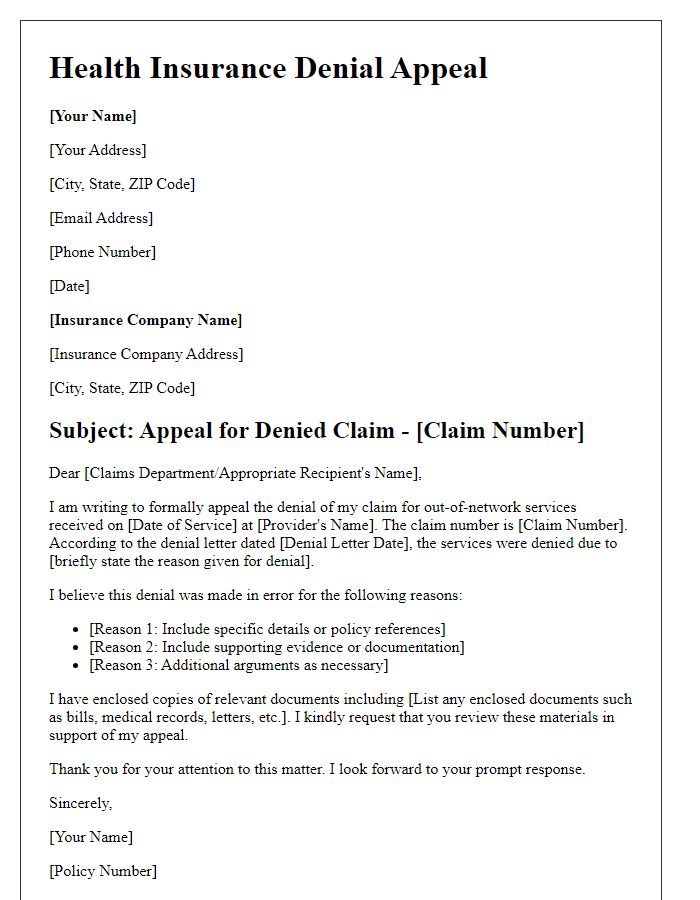
Letter template of health insurance denial appeal for prescription medication coverage
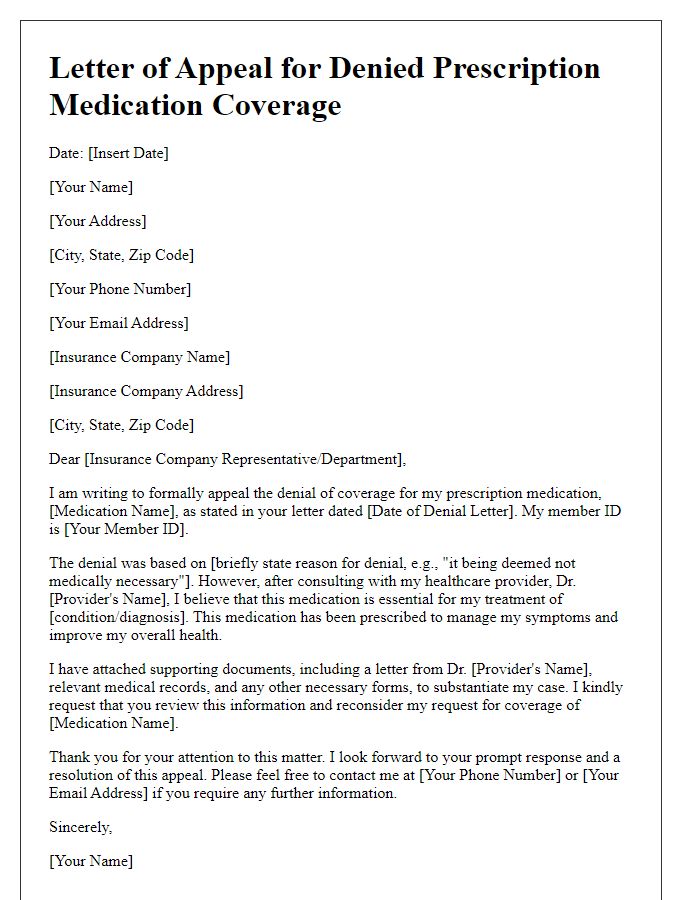
Letter template of health insurance denial appeal for denied preventative care services
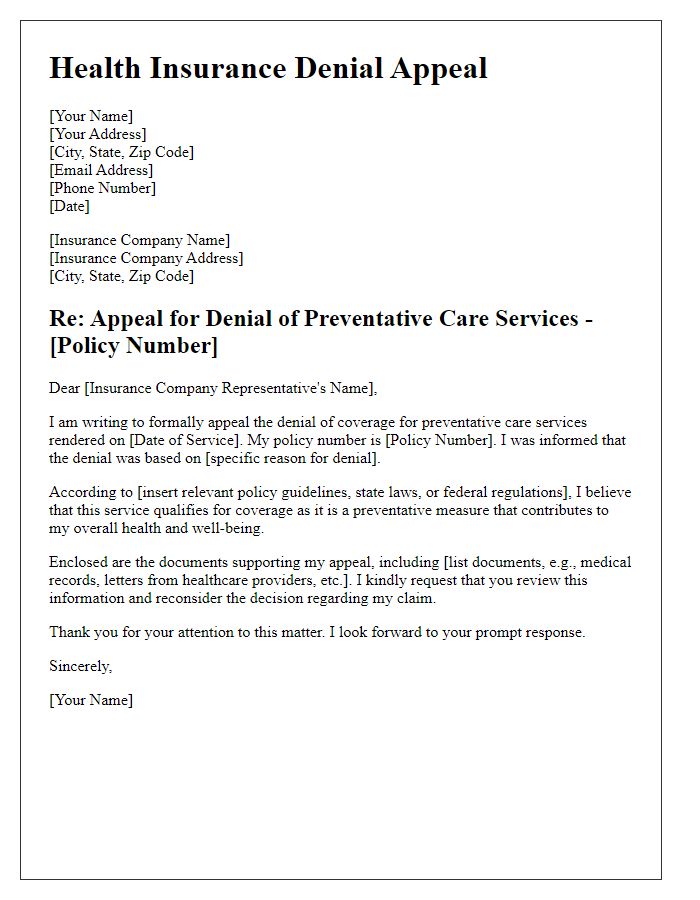
Letter template of health insurance denial appeal for mental health treatment coverage
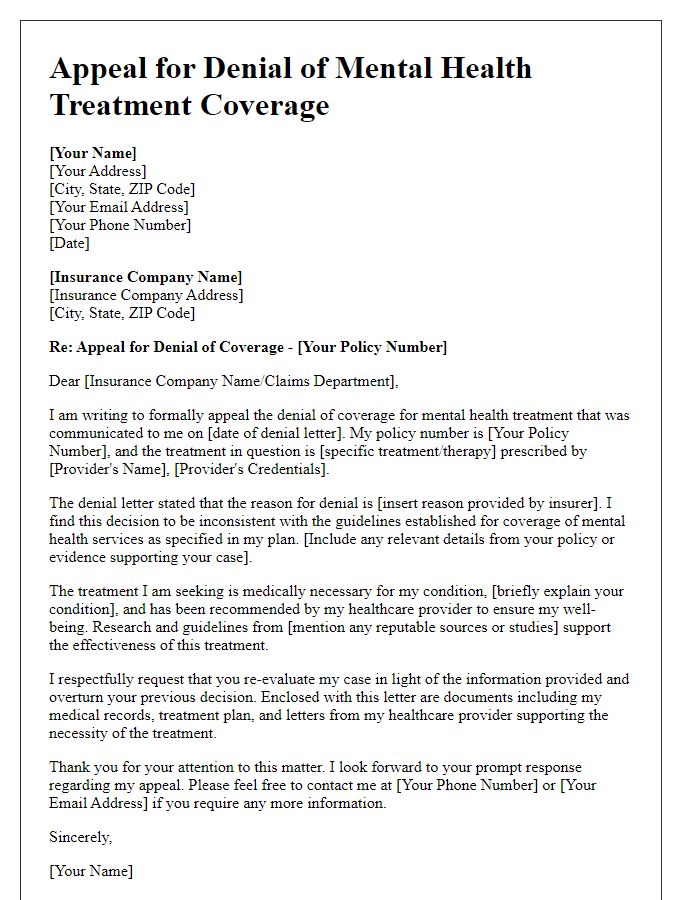
Letter template of health insurance denial appeal for rehabilitation services
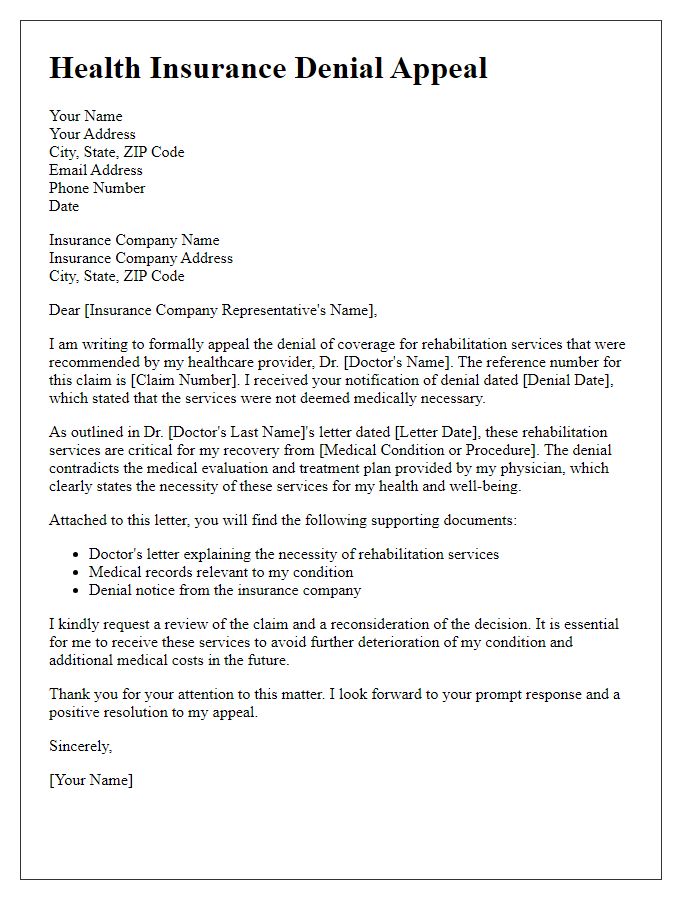
Letter template of health insurance denial appeal for hospitalization costs
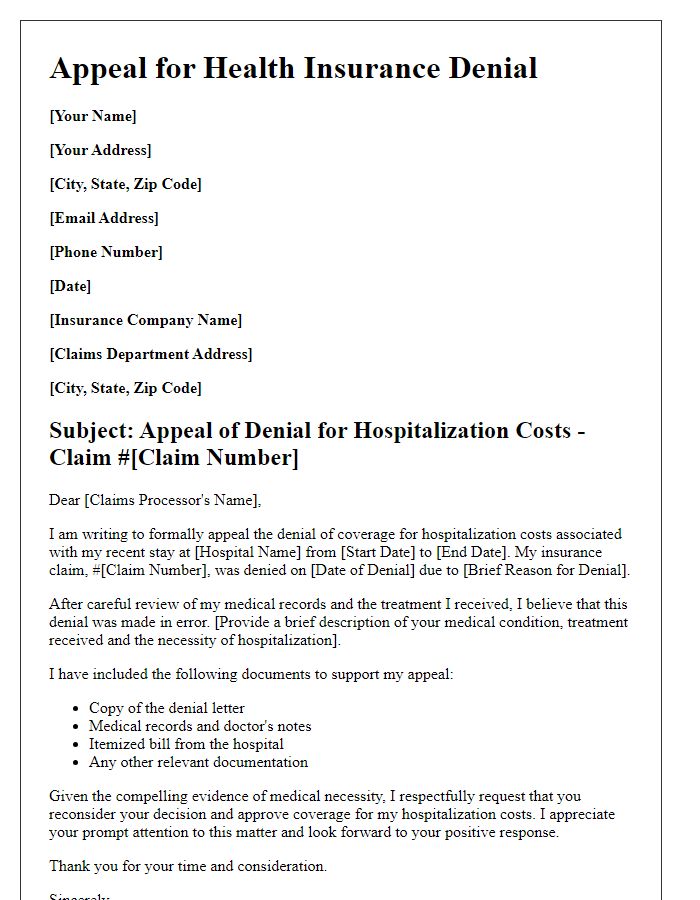

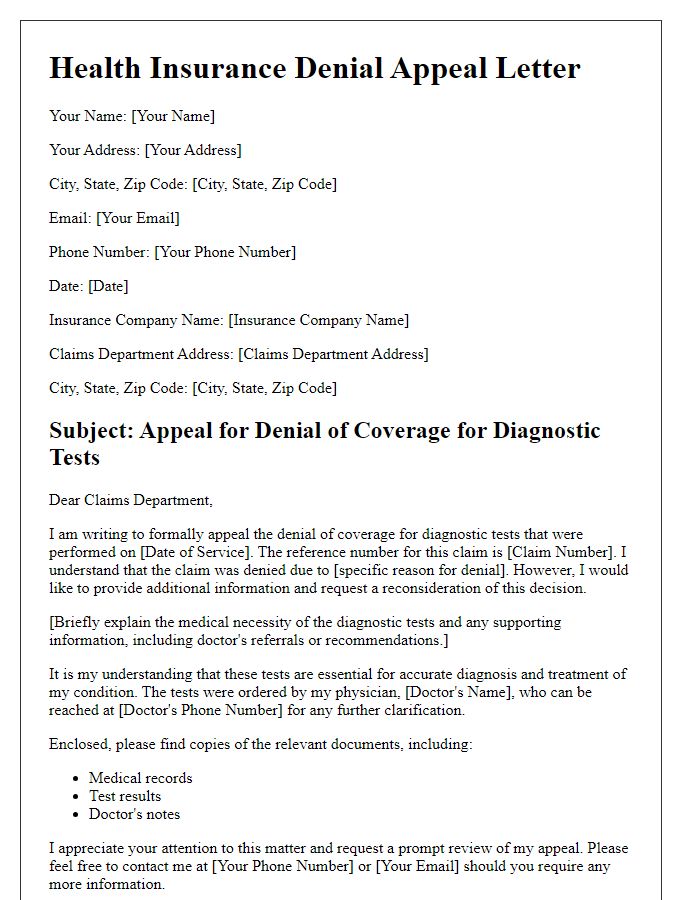
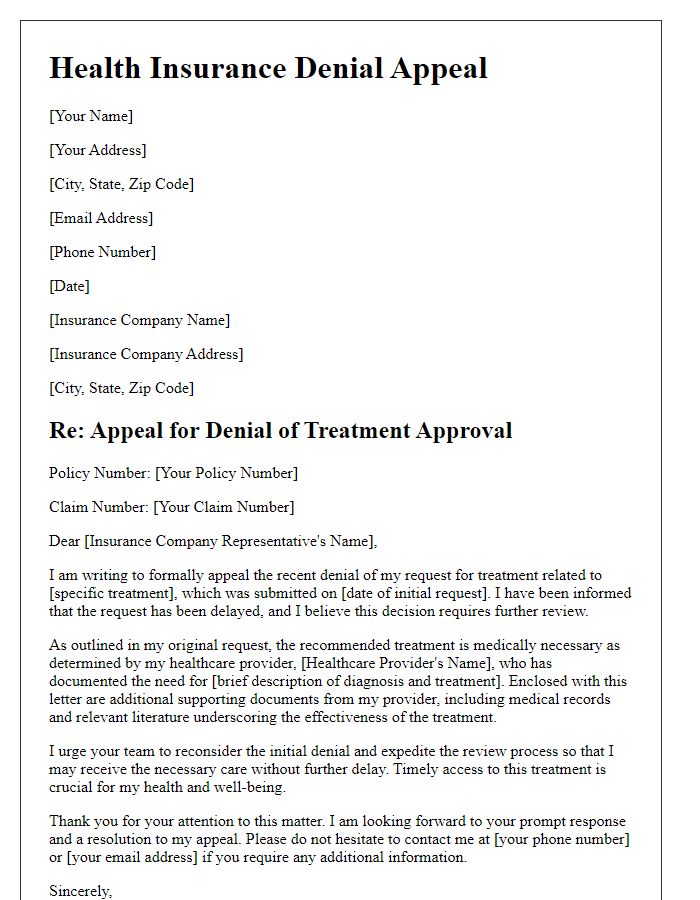


Comments